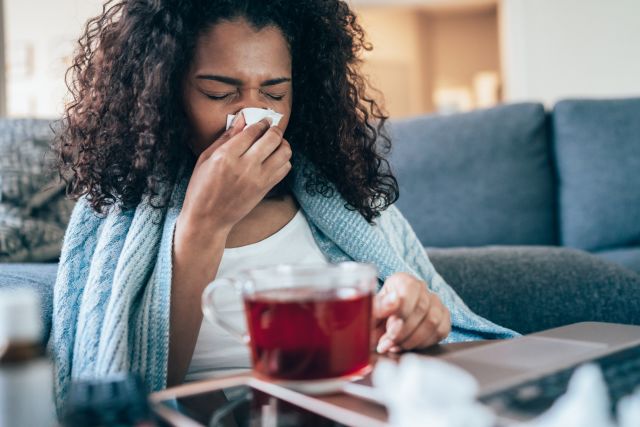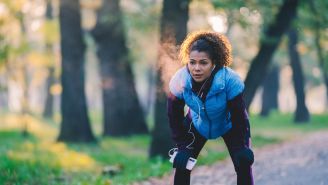Updated on May 6, 2024.
You may have heard that you can get sick from going outside without a hat during winter. More people do tend to get sick during colder months. But it is not directly due to the weather. Chilly weather causes more people to stay indoors more often. And being inside around other people make it easier for viruses or other germs to spread. This is especially true if you are in a crowded room with closed window or doors where there is not as much ventilation or air flow.
Dry, cold air can also make viruses more stable and more likely to cause infection. And when you get less sunlight in winter, your vitamin D levels can drop. This can make it harder for your immune system to fight off germs.
Taking these steps can help you avoid colds, the flu, and other germs when it is cold outside:
Wear a mask. Keeping a well-fitting mask over your nose and mouth in indoor public spaces protects you and others from colds, the flu, COVID and other respiratory infections.
Socially distance. Stay at least 6 feet away from people who are sick. Putting some distance between you and others—that means no hugging, kissing, or handshakes—may help cut your risk for colds, the flu, COVID, and other infections.
Avoid crowds and poorly ventilated places. Going to restaurants, bars, video game arcades, gyms, and other crowded places may increase your risk for exposure to germs. These places are often crowded and windows may not be open during winter.
Vaccinate. There’s no vaccine for the common cold, but you can and should be vaccinated against COVID as well as the flu. Everyone ages 6 months and older should get a yearly flu shot and COVID vaccine.
Experts also recommend getting the respiratory syncytial virus (RSV) vaccine if you are aged 60 or older. Ask your healthcare provider (HCP) about the RSV shot if you are pregnant, or have a baby or toddler.
Wash your hands. When you wash, any germs you pick up go down the drain instead of sticking to surfaces for other people to pick up. Wash your hands before preparing food and eating, after coughing or sneezing, after shaking hands or being in public places, and after using the bathroom (including at home).
Don’t touch your face. Germs on your hands can get into your eyes, nose, and mouth when you touch your face. Wash your hands well and often with soap and water.
Clean and disinfect high-touch surfaces, like keyboards, fridge handles, light switches, and doorknobs.
When you do sneeze or cough, do it into your mask, cover your mouth with a tissue, or use the crook of your elbow. If you do sneeze into your hands, wash them right away or use hand sanitizer.







